That sinking feeling when you spot a damp patch or a small puddle where it shouldn’t be is something we understand deeply. It’s more than an inconvenience; it’s a worry about your home’s safety and value.
We’ve helped thousands of homeowners just like you. Our team brings over three decades of combined experience to every job. We know that a permanent fix requires a thorough diagnosis and the right solutions.
This guide is designed to empower you. We’ll walk you through identifying the source of water intrusion and the most effective methods available today. You’ll also find clear information on what to expect, with typical project investments ranging from $4,000 to $8,000 for comprehensive long-term protection.
Remember, you’re not alone in this. Our support center is available 24/7 for emergencies. You can reach us at 1-833 888 2533 or email info@dmvwp.com for immediate assistance.
Key Takeaways
- Discovering water in your lower level can be a stressful experience that raises concerns about property damage.
- Ignoring moisture issues can lead to serious structural problems and mold growth over time.
- A professional, lasting solution requires accurate diagnosis and the correct application of waterproofing methods.
- Understanding the common causes and repair options helps you make informed decisions for your property.
- Investing in quality waterproofing protects your home’s value and provides peace of mind.
- Our team offers expert service and is available around the clock to assist with any urgent situations.
Understanding the Causes and Effects of Basement Leaks
Discovering unwanted water in your lower level can be unsettling, signaling potential issues with your home’s foundation. We find that moisture problems rarely happen without an underlying source that needs proper identification.
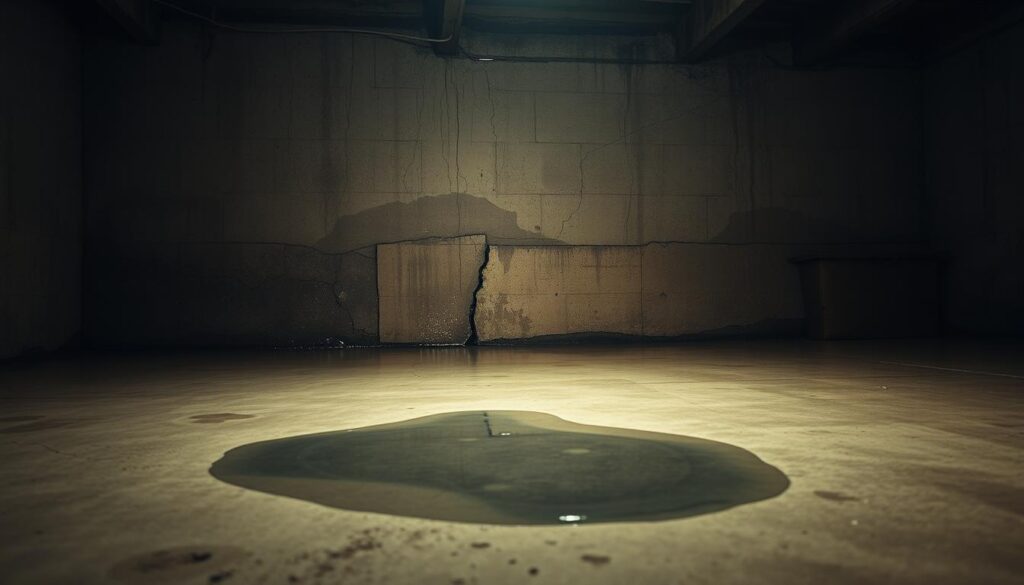
Common Sources of Water Intrusion and Moisture Issues
Hydrostatic pressure is one of the most frequent culprits we encounter. This occurs when groundwater saturates the soil around your foundation, creating immense pressure against walls and floors.
The force pushes moisture through even tiny cracks and joints in your structure. Poor exterior drainage also allows rainwater to pool around the foundation, eventually seeping inside.
Homes in areas with high water tables or clay-based soil face particularly challenging conditions. These environments naturally retain more groundwater that constantly pressures your foundation over time.
Impact on Foundations, Walls, and Interior Damage
The effects extend far beyond just wet floors. Prolonged moisture exposure can lead to serious structural damage, compromising your foundation’s integrity.
Water intrusion creates perfect conditions for mold growth, which can develop within 48 hours. This poses health risks, especially for those with respiratory issues.
We’ve seen how moisture problems damage finished spaces and decrease home value. Understanding these causes is the critical first step toward effective solutions.
Basement Leak Repair: Essential Steps to Detect and Fix
When you first notice moisture in your lower level, it’s natural to feel concerned about the integrity of your property. The correct first step is crucial for a permanent solution. We focus on accurate diagnosis to ensure our work addresses the true origin of the problem.
Identifying Leak Origins and Structural Concerns
Our process always starts with a detailed inspection. We look for specific signs that tell the story of how water is entering your space.
Efflorescence, those white, chalky deposits, indicates past moisture movement. Dampness patterns and active seepage point directly to entry points. We carefully examine all foundation surfaces for any cracks.
It’s vital to determine if the issue is plumbing-related or stems from the structure itself. This distinction guides the entire way we approach the fix.
Our Process for Quick and Reliable Leak Detection
Our contractor team uses advanced methods to trace moisture pathways. This helps us find the source even when it’s not obvious.
We assess your basement walls for any bowing or stress signs. This is part of our commitment to a thorough evaluation. We then explain our findings clearly, showing you the concerns and discussing the best solutions.
A professional inspection is a smart investment. It typically costs between $300 and $1,000. This step can prevent far more expensive work later by catching issues early.
| What We Find | What It Often Means | Typical Action Needed |
|---|---|---|
| Horizontal cracks in walls | Significant soil pressure on the foundation | Structural reinforcement |
| Water seepage at floor/wall joint | Hydrostatic pressure from groundwater | Improve drainage or install a sump pump |
| Damp patches on basement wall | Poor exterior drainage or grading | Redirect water away from the home |
| Active dripping from a crack | An active pathway for water entry | Professional sealing from the interior or exterior |
Comprehensive Guide to Waterproofing Your Basement
Choosing the right waterproofing method can make all the difference in keeping your lower level dry and secure. We want to help you understand the different approaches available.
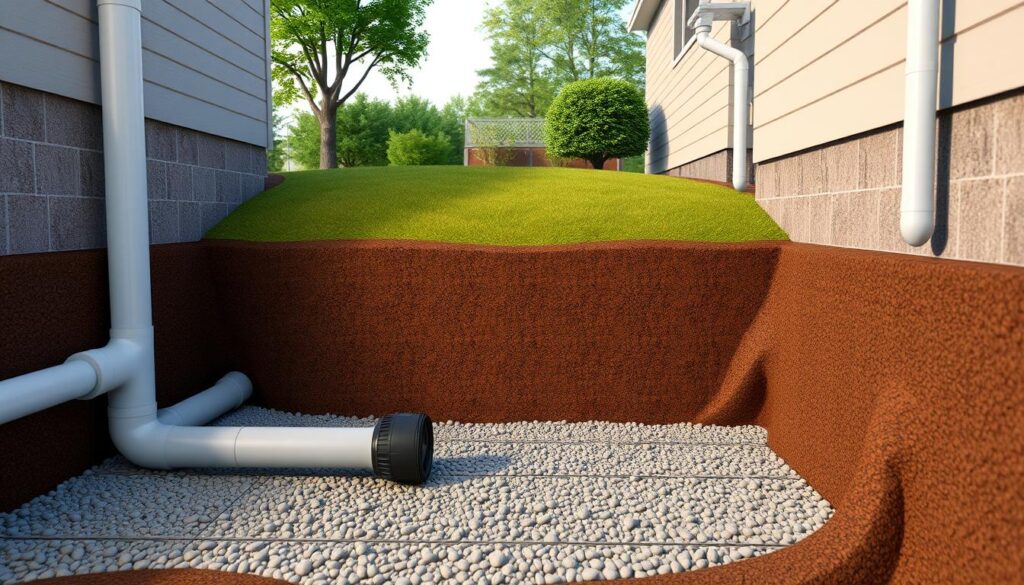
Interior Sealing Versus Exterior Sealing Techniques
Interior methods involve applying protective coatings to walls and floors from inside your home. This creates a barrier against moisture entering your living space.
Exterior techniques require digging around your foundation to apply waterproof membranes outside. This addresses water issues at their source.
We typically recommend interior systems for most situations. They offer comparable protection with less disruption and lower costs.
Utilizing Drainage Systems and Sump Pump Installations
A complete interior waterproofing system has two key components working together. The drainage system collects water before it causes problems.
The sump pump then actively removes collected water from your home. It automatically activates when water reaches a certain level.
Installation involves placing drain tile around the perimeter of your foundation footing. New concrete is poured to restore the floor surface.
Sump pump installations typically range from $560 to $3,500. This depends on your specific layout and pump system needs.
Practical How-To Solutions and Cost Considerations
Taking control of moisture issues starts with understanding both practical solutions and realistic investments for your property. We want to help you make informed decisions whether you’re handling minor concerns yourself or planning professional services.
Knowing your options empowers you to choose the right approach for your specific situation and budget.
Selecting Quality Materials Like Hydraulic Cement and Sealants
For minor cracks and slow moisture issues, hydraulic cement offers an excellent DIY solution. This material expands as it dries, creating a waterproof seal even in damp conditions.
Safety is crucial when working with these products. Always wear protective gloves and a dust mask. Proper preparation involves scoring beyond the visible damage and chiseling away loose material.
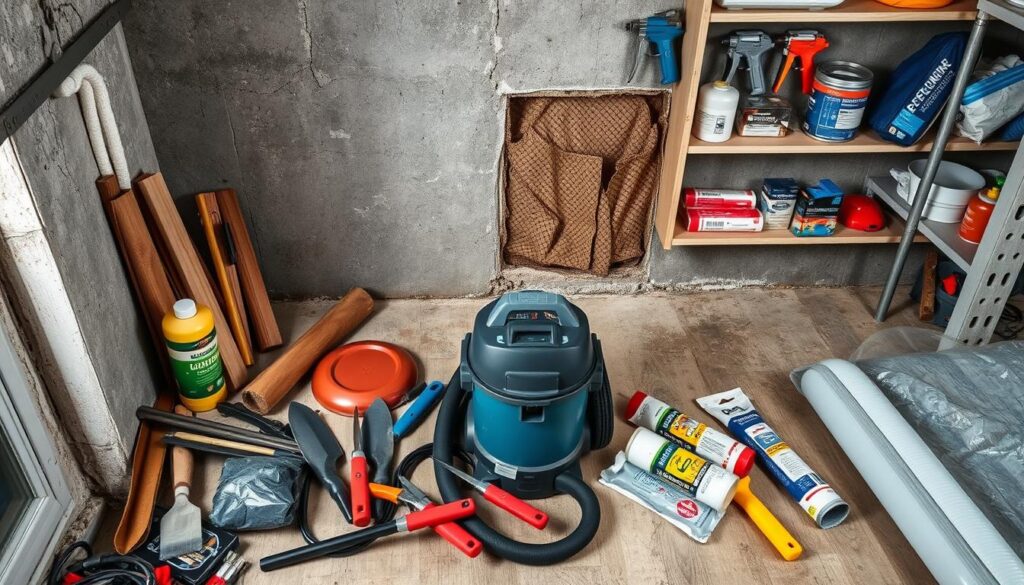
For hairline foundation cracks, epoxy fill provides a flexible solution that adjusts with seasonal movement. Once your patch cures, applying a waterproof paint like UGL Drylock adds extra protection.
Understanding Repair Costs and Budgeting for Long-Term Protection
Professional services provide comprehensive protection for more serious concerns. The average investment for complete waterproofing ranges from $4,000 to $8,000.
Foundation crack fixes typically cost $1,500 to $3,000 depending on severity. Excavation work can add $100 to $300 per linear foot due to the intensive labor involved.
If moisture has led to mold growth, professional remediation becomes essential. This service ranges from $500 to $6,000 based on contamination extent.
We encourage homeowners to consider the long-term value of proper solutions. Protecting your home’s foundation and structure is an investment that pays dividends over time.
Using Preventative Measures for a Dry, Healthy Basement
Proactive care is your strongest defense against moisture problems in your lower level. We believe smart prevention saves you from costly solutions later.
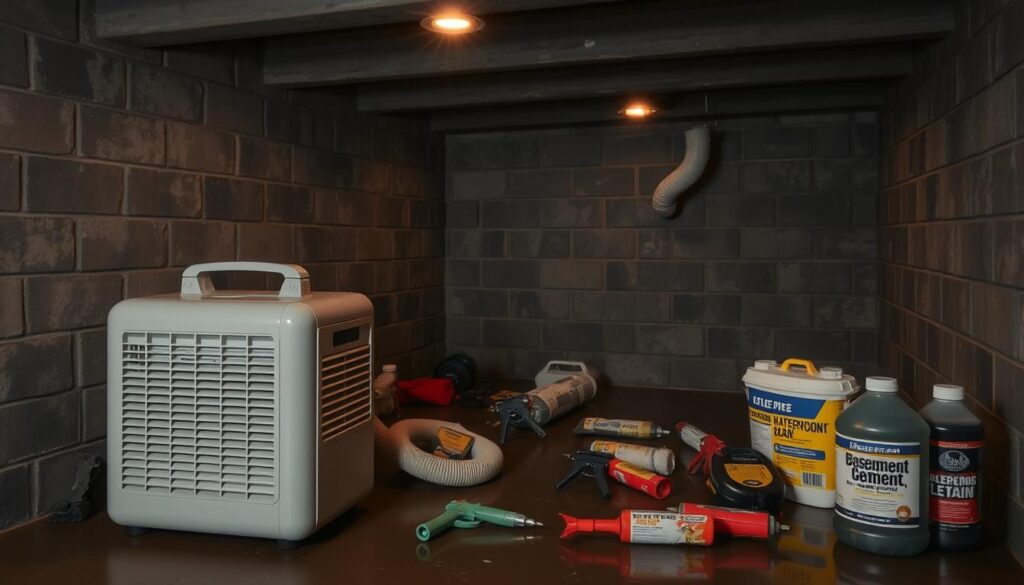
Regular Maintenance, Inspections, and Proactive Repairs
Proper drainage begins outside your home. Evaluate landscaping materials around foundation areas. Ensure they allow water flow instead of pooling.
Yard grading directs rainwater away foundation walls. This reduces hydrostatic pressure that causes cracks. Clean gutters twice yearly to prevent overflow.
Extend downspouts at least 10 feet from your structure. This simple step protects against water saturation near wall surfaces.
| Maintenance Task | Frequency | Key Benefit |
|---|---|---|
| Gutter cleaning | Twice yearly | Prevents overflow near foundation |
| Downspout inspection | Seasonally | Ensures proper water diversion |
| Grade evaluation | Annually | Maintains slope away from home |
| Landscaping check | Spring and fall | Prevents water trapping materials |
Leveraging Our 24/7 Support Center
We’re available anytime at 1-833 888 2533 or info@dmvwp.com. Our team serves DC, Maryland, and Virginia areas with multiple convenient locations.
Regular inspections catch small issues before they become major concerns. Contact us for professional assessment of your waterproofing needs.
Conclusion
Protecting your property is an investment in your family’s safety and your home‘s long-term value. We’ve shared the knowledge to help you understand moisture issues and the most effective solutions available.
With over three decades of specialized experience, our team provides expert inspections to find the true source of any problem. We then create a customized plan for your specific situation. Our work comes with a lifetime guarantee because we are that confident in the results.
Choosing the right contractor is crucial. You deserve a team that is properly insured and accredited. We serve homeowners across DC, Maryland, and Virginia.
Ready for a dry, healthy lower level? Contact our support team anytime at 1-833 888 2533 or info@dmvwp.com. Let’s discuss your foundation and waterproofing needs today.

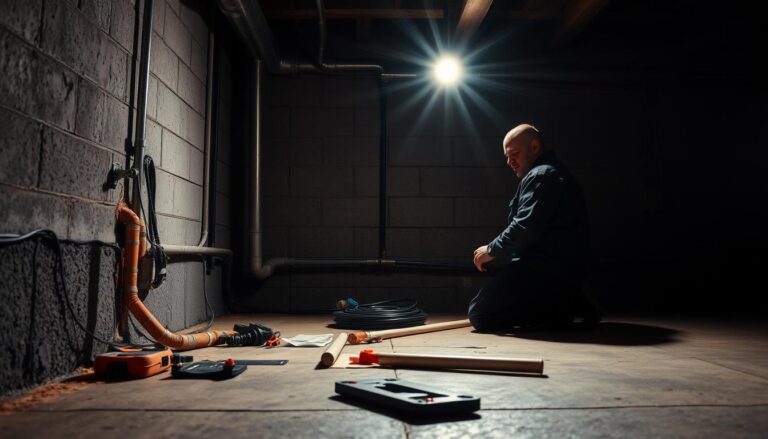
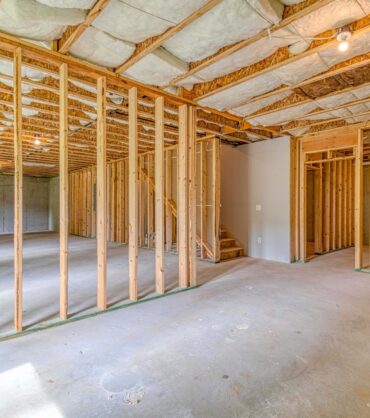
![[GetPaidStock.com]-680786795b816 [GetPaidStock.com]-680786795b816](https://dmvwp.com/wp-content/uploads/2025/04/GetPaidStock.com-680786795b816-370x418.jpg)
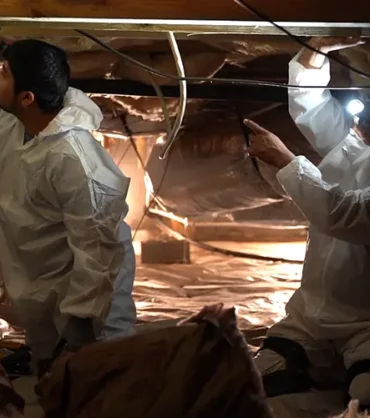
![[GetPaidStock.com]-682c400c87c15 [GetPaidStock.com]-682c400c87c15](https://dmvwp.com/wp-content/uploads/2025/04/GetPaidStock.com-682c400c87c15-370x418.jpg)
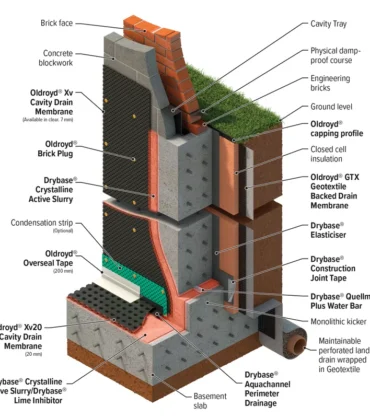
![[GetPaidStock.com]-682c413fa898e [GetPaidStock.com]-682c413fa898e](https://dmvwp.com/wp-content/uploads/2025/03/GetPaidStock.com-682c413fa898e-370x418.jpg)